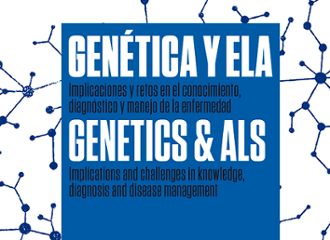Research projects
Start of main content
Molecular Intersect of Autophagy and LINE-1 Retrotransposons Regulation During Aging
22st national competition for scientific and technical research
Aging and neurodegenerative diseases
Senior Researcher : José Luis Nieto Torres
Research Centre or Institution : Facultad de Ciencias de la Salud. Universidad CEU- Cardenal Herrera. Valencia
Abstract
Aging is the major and root factor leading to the onset of the chronic diseases of our century, including neurodegeneration, cancer, and heart-related diseases. Therefore, understanding the molecular basis of aging is critical to foster healthy aging.
At the cellular level, aging is caused by the accumulation of damage. This arises via deficiencies in protective mechanisms that maintain cellular homeostasis and increased exposure to damaging agents. Autophagy is a key cellular repair process that promotes longevity, whose efficiency, unfortunately, decreases during aging via unknown mechanisms. Conversely, genetic mobile elements such as LINE-1 retrotransposons can be a major source of harm, leading to DNA damage and deleterious inflammatory responses, processes that increase with age. The molecular changes that lead to autophagy dysregulation and uncontrolled activity of retrotransposons during aging are not well understood, and the potential correlation in their age-dependent variation is unknown.
Recently, we described a regulatory pathway required for autophagy completion, which involves the phosphorylation of the core autophagy protein LC3B. LC3B phosphorylation regulates the binding of a set of proteins that may have autophagy-regulatory functions. Strikingly, these interactors have key functions in LINE-1 retrotransposon biology.
We hypothesize that the autophagy machinery and LINE-1 retrotransposons are tightly connected through dual common interactors and influence each other in an unprecedented manner. We speculate that the autophagy/LINE-1 dual interactors are subject to agedependent changes that could explain autophagy and LINE-1 simultaneous dysregulation during aging. This proposal aims to decipher these intriguing questions and point out potential targets to promote healthy aging.
-
 Activities related
Activities related
-
 Projects related
Projects related
-
 News related
News related
-
 Publications related
Publications related
 Activities related
Activities related
-
26
Jun
2024
Conferencias La aventura de la ciencia Madrid, Miércoles 26 de junio de 2024, 19:00 horas
-
13
Feb
2025
17th edition. Cycle of conferences and debates in science Digital Twins: Technological Advances and Application Opportunities Madrid, Thursday, 13 February 2025, 17:30 hours
-
18
Feb
2025
Session New Therapies for the Inflammation Treatment Madrid, Feb 18th, 2025, Tuesday. 4PM
 Projects related
Projects related
- Development and Application of saRNAs for the Treatment of Rare Monogenic Diseases 2024 Senior Researcher : María Luisa Cayuela Fuentes
- CHANNELOSOME RESCUING PEPTIDES IN THE TREATMENT OF ARRHYTHMIAS IN INHERITABLE HEART DISEASES 2024 Senior Researcher : José Jalife Research Centre or Institution : Centro Nacional de Investigaciones Cardiovasculares (CNIC). Madrid
- Mechanisms for sustaining mitochondrial genome integrity and function during hematopoiesis. 2024 Senior Researcher : Ana Victoria Lechuga Vieco Research Centre or Institution : Fundació Clínic per a la Recerca Biomèdica. Hospital Clínic. Barcelona
 News related
News related
 Publications related
Publications related


End of main content



